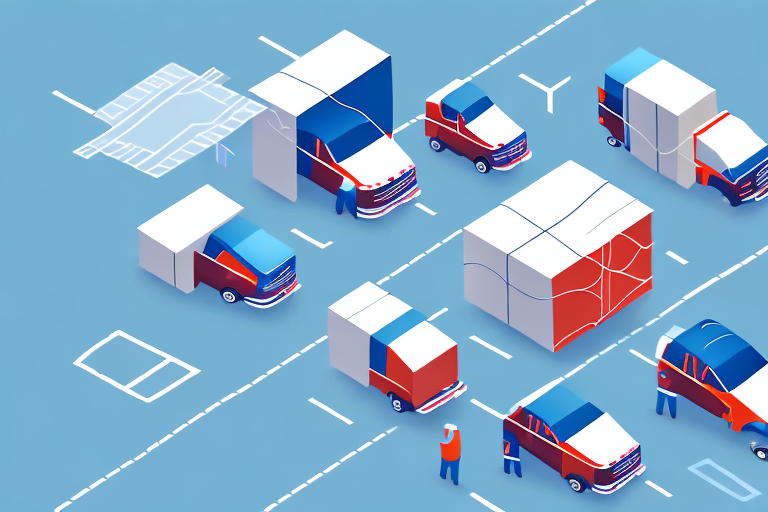Understanding Carriers and Couriers: Key Differences and Uses
When it comes to shipping goods, businesses and individuals have various options available. Two of the most common types of services are carriers and couriers. While these terms are often used interchangeably, they have distinct differences that can impact your shipping needs. Understanding these differences can help you make more informed decisions about which service to use.
Definitions: Carrier vs Courier
A carrier is a company that provides transportation services for goods, such as trucking companies, airlines, or shipping companies. They handle the bulk movement of goods, often over long distances and large volumes. On the other hand, a courier is an individual or company that specializes in the fast and reliable delivery of small packages, documents, or parcels directly to their destination, typically within a local or regional area.
Historical Evolution of Shipping Services
The concept of transporting goods from one place to another has evolved significantly over centuries. In ancient times, goods were primarily moved by land or sea, with technologies such as wagons, ships, and later, trains and trucks playing a central role. Couriers also have a long history, with messengers delivering important messages and packages by horseback or on foot.
With the advent of the Industrial Revolution and advancements in transportation technology, the shipping industry expanded to include air freight and more sophisticated logistics networks. In recent years, the rise of e-commerce has dramatically increased the demand for both carrier and courier services, leading to the development of innovative delivery methods like drones and same-day delivery services.
Modern Operations of Carriers and Couriers
Today, carriers and couriers operate within a complex global network that incorporates multiple modes of transportation, including air, sea, and land. Carriers typically utilize large trucks, cargo ships, or airplanes to transport goods across continents, often managing intricate logistics chains that involve multiple partners and stakeholders.
Conversely, couriers focus on the final leg of delivery, handling local or regional shipments with an emphasis on speed and reliability. They often provide services such as same-day or next-day delivery, catering to businesses and consumers who require prompt receipt of their packages.
Similarities and Differences Between Carriers and Couriers
Similarities
- Both are essential for the movement of goods and information.
- They operate within the broader transportation and logistics industry.
- Both employ tracking and monitoring systems to ensure shipments are delivered safely.
Differences
- Scope of Services: Carriers often handle large-scale, long-distance shipments, including international deliveries, while couriers typically manage smaller, local parcels.
- Pricing Structures: Carriers usually have pricing based on weight, distance, and volume, whereas couriers may offer flat rates or customized quotes based on speed and service level.
- Delivery Speed: Couriers prioritize quicker delivery times, sometimes offering same-day services, whereas carriers may focus on cost-effectiveness for bulk shipments over longer periods.
- Specialization: Carriers may provide specialized services like refrigerated transport for perishable goods, while couriers often offer services tailored to sensitive or urgent deliveries.
Advantages of Carrier Services
- Cost-Effectiveness for Large Shipments: Carriers are often more economical for shipping large volumes or heavy items over long distances.
- Comprehensive Tracking: They provide extensive tracking options, enabling shippers to monitor their goods throughout the transportation process.
- Experienced in International Shipping: Carriers are well-versed in navigating customs regulations and managing international logistics.
- Flexible Delivery Options: Many carriers offer various delivery timelines, including same-day, next-day, or scheduled deliveries.
- Robust Customer Support: Carriers typically have dedicated customer service teams to handle inquiries and resolve issues promptly.
Advantages of Courier Services
- Speed and Flexibility: Couriers can often deliver packages within hours or by the end of the same day, providing quick turnaround times.
- Personalized Service: They offer more tailored services, such as specific delivery windows or handling of delicate items.
- Local Expertise: Couriers are familiar with local areas, enabling efficient and accurate deliveries.
- Enhanced Security: Many courier services employ GPS tracking and require signature confirmations to ensure secure deliveries.
- Specialized Delivery Options: Some couriers offer temperature-controlled transport or secure handling for high-value goods.
Choosing Between a Carrier and a Courier
When deciding between using a carrier or a courier service, several factors should be considered:
- Shipment Size and Weight: Larger, heavier shipments are typically more cost-effective through carriers, while smaller packages are better suited for couriers.
- Delivery Speed: If time is of the essence, couriers offering same-day delivery may be preferable.
- Destination: International or long-distance shipments may require carriers with extensive logistical networks.
- Cost: Assess your budget and compare pricing structures of both carriers and couriers.
- Special Requirements: Consider if your shipment requires special handling, such as refrigeration or enhanced security.
- Customer Service and Reliability: Research the reputation and customer reviews of potential service providers.
Impact on Shipping Costs and Delivery Times
The choice between carrier and courier services significantly affects shipping costs and delivery times. Carriers generally offer lower rates for bulk shipments and longer distances but with extended delivery periods. According to Statista, shipping costs have fluctuated due to global supply chain disruptions, making it essential to evaluate current rates.
Couriers, while potentially more expensive on a per-package basis, provide faster delivery which may be critical for time-sensitive shipments. Evaluating your specific needs for cost versus speed is crucial in selecting the appropriate service.
Future Trends in Carrier and Courier Services
Technological Advancements
Technology continues to reshape the shipping industry. Advances such as blockchain for secure and transparent tracking, drones for last-mile delivery, and autonomous vehicles for transportation are set to revolutionize how carriers and couriers operate. For instance, companies like Amazon are piloting drone deliveries to enhance speed and efficiency (Forbes).
Environmental Sustainability
With increasing awareness of environmental issues, carriers and couriers are adopting more sustainable practices. This includes utilizing electric vehicles, optimizing routes to reduce carbon emissions, and implementing eco-friendly packaging solutions.
Impact of Global Events
Global events, such as the COVID-19 pandemic, have demonstrated the resilience and adaptability of shipping services. The pandemic accelerated the growth of e-commerce and heightened the importance of reliable shipping, prompting carriers and couriers to innovate and enhance their service offerings to meet changing consumer demands.
Conclusion: Selecting the Right Service for Your Needs
Choosing between a carrier and a courier depends on various factors, including the size and urgency of your shipment, destination, cost considerations, and specific service requirements. By thoroughly assessing your shipping needs and understanding the strengths of each service type, you can make informed decisions that optimize your logistics operations.
Top Carrier and Courier Service Providers
Several reputable companies offer carrier and courier services, each with its own strengths:






















